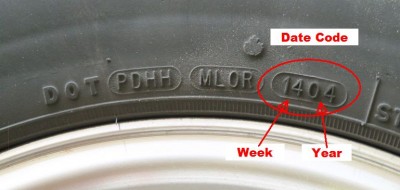Balancing Act
I read with interest your answer concerning trailer hitches and sway controls in the May edition of Tech Topics. I have also read several articles in other publications on the same subject, and no mention is made on making sure the trailer is loaded properly and the proper tow vehicle is being used. In my humble opinion, no article should be written on trailer hitches without covering the proper distribution of the load and proper tow vehicle.
Once, a work associate who knew my background in towing asked me for some help. It seemed that he was still having issues with sway even after installing one of the hitches mentioned. When I got to his home, I saw the problem immediately. He had a generator and storage boxes welded to the back of the frame, placing too much of the load to the rear of the wheels. The people who sold him the trailer and hitch and welded the storage box on the back failed to explain proper trailer loading.
Before I retired, I spent much of my time commuting on I-15, I-40 and I-10 in Southern California and had a chance to observe many traffic accidents with trailers. Many of these vehicles used exotic sway controls, but things were so out of balance, accidents occurred anyway. Some even involved fifth wheels. Yes, they also can be loaded improperly. One time, I saw an entire trailer and tow vehicle roll over due to high winds. The driver thought his weight distribution was OK because of the sway control that he had just installed.
When I began towing many years ago, I was fortunate to have a mentor who was a pioneer of the modern trailer industry. His answer to me when I inquired about sway controls was, “First, you get the proper tow vehicle, properly load your trailer and, most important, drive properly—then we will talk sway controls.”
I have pulled without incident for more than 40 years. Today, I pull a new 33-foot trailer with a standard weight-distributing hitch without a sway control.
My thoughts on sway controls are this: they are treating the symptom, not the cause. The cause needs to be treated. You don’t treat a broken leg with pain pills; you fix the broken leg. That being said, there may be times when a sway control would be beneficial—such as bad weather—and I do carry one. However, if the weather is that bad, do you really need to be traveling that day?
Glenn Strickler
Victorville, California
Bob: You’re right, Glenn. Balance and loading are important, and I have stressed that many times in this column. Hitch weight is the critical factor. If the weight on the hitch is 12%–15%, the trailer should handle well. Unfortunately, many trailers are too light on the hitch. When hitch weight is reduced to 10% or lighter, the owner can expect the trailer to handle poorly, and it may even be unsafe in most driving conditions. You might get by with 11%–13%, but under adverse conditions—most times caused by strong cross winds or 18-wheelers passing at high speeds—stability may be negatively impacted.
Hanging heavy items like AC generators and motorcycles on the rear bumper of the trailer can exacerbate the situation. In most cases, the frame is not capable of handling the extra weight, making the situation even more dangerous. A water tank mounted in the rear of the trailer also can cause stability problems, as the water sloshes side to side, creating a pendulum effect.
Fortunately, today’s hitches can handle additional weight, so there’s less excuse for improper balance.
I agree that a sway control should not be a Band-Aid approach. But a sway control is good insurance, especially when encountering unexpected or emergency situations. I also believe, as stated in previous columns, that the Hensley and PullRite hitches do a great job in enhancing stability when towing conventional trailers. Equal-i-zer and Blue Ox also have hitches designed to improve trailer stability by limiting sway.
Sway control dampens (or slows) the pivoting motion of the trailer coupler on the ball, which can be helpful even if you’re towing a well-balanced trailer with a tow vehicle suitably rated for the load.
Typically, fifth wheels have a higher percentage of hitch weight, so towing is inherently more stable. Most owners are very comfortable towing a fifth wheel, but hanging on a bunch of weight at the rear can adversely affect handling and stability. Unless the trailer is designed by the factory to handle additional weight on the rear (by beefing up the suspension and properly balancing) or inside the back section in the case of toy haulers, you need to refrain from this practice.

